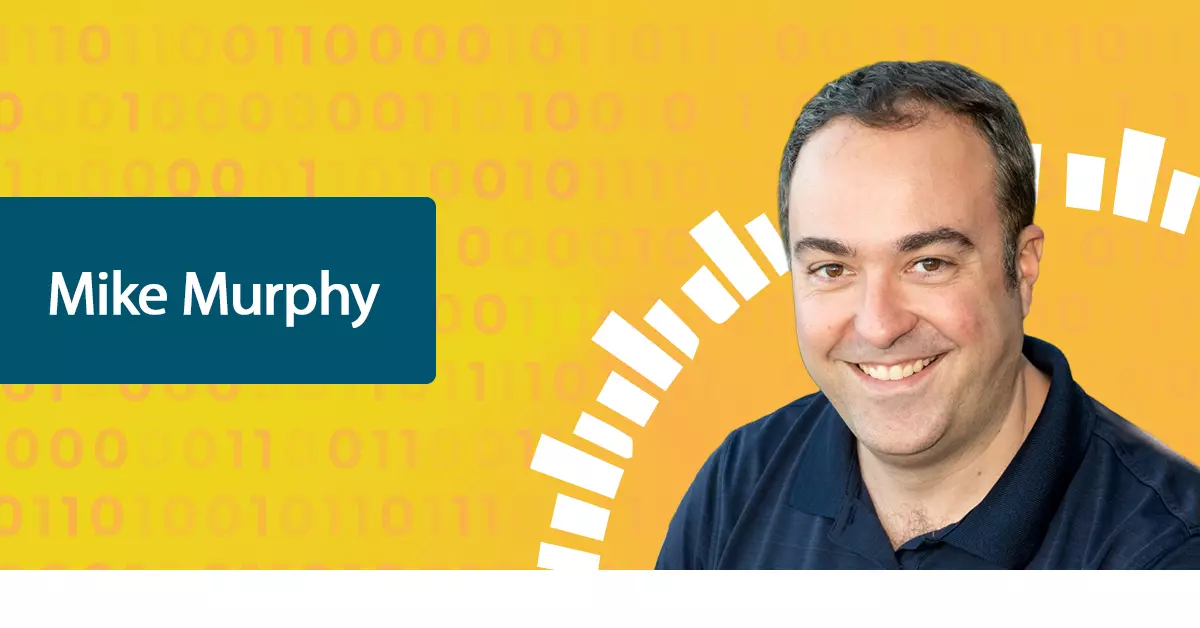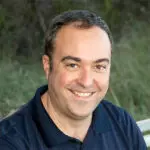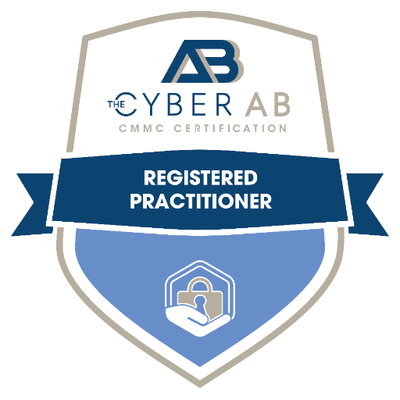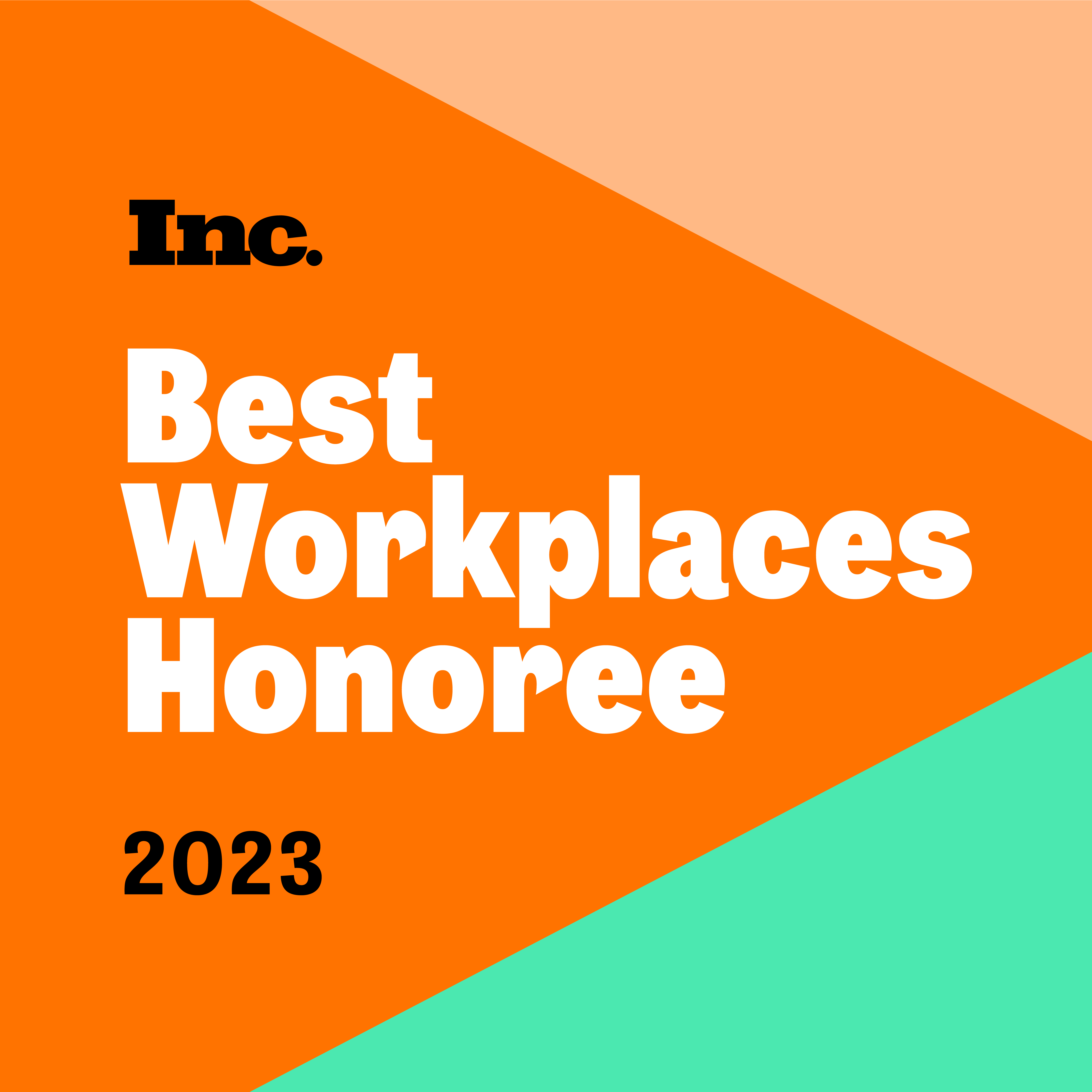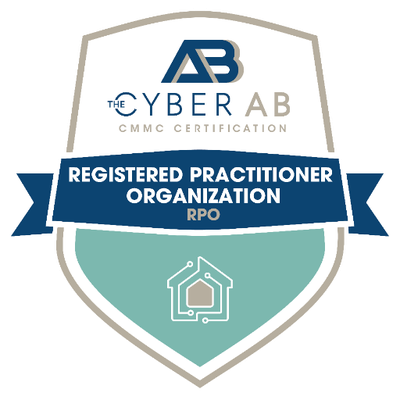It is very hard to find people who have that great combination of technical skills and personable skills. Both skillsets are equally needed to build a successful career in tech, and having both in the same person is a rare find. This is why the issue of finding and, more importantly, retaining employees is something the keeps tech entrepreneurs up at night. Mike Murphy, IT CEO of Epoch IT Solutions, tells us his perspective around this topic. As a tech entrepreneur for years, he has been focused on finding and training people to do what he does because he knows that he can’t do everything by himself. He deeply understands what a gem it is to find people who have that right balance of technical expertise and social savvy. Tune in for more about this and Mike’s take on the riskiest topping in his cybersecurity pizza!
—
Watch the episode here
Listen to the podcast here
Finding And Retaining Employees With A Combination Of Technical And Personable Skills With Mike Murphy
We’ve got a great guest who is the builder of computers, a lover of Dan-O’s Seasoning, and hopes to be one day sponsored by Dan-O’s. He’s the entertainer of Epic Sales Fails on LinkedIn. We have the IT CEO of Epoch IT Solutions. Welcome, Mike Murphy.
Thanks. I appreciate you having me.
It’s good to have you. We’re going to jump right in here and get started with our leading question. If the cyber risk was a pizza and the frameworks are the crust, what’s the riskiest topping you’ve seen and what topping would you equate that?
The riskiest topping would be any kind of salmon or fish on a pizza. It would be the stinkiest smelliest fish. I was thinking of unpatched exchange servers or systems where there are multiple vulnerabilities and they are never patched.
Maybe they never reboot right after the patches.
You got to do that.
It’s one thing to have anchovies or salmon on a pizza, but even if you take it off, it still permeates throughout.
It’s been destroyed. You can’t fix it.
As a CEO and Founder, what keeps you up at night? What kind of problems are you seeing out in the world?
A lot of it is based on employee retention and finding good technical employees. I grew up working solely technical. When you start working in the early to mid-‘90s, it was, “Do you know computers? Here you’re going to work on computers.” That’s all you did. You didn’t do anything else. You didn’t talk to people. It started to shift and now there’s more consulting. I have a personality so I can talk to people, people, and then everybody was, “Let someone else handle that technical part.” These two roles started to shift. It has now become, “There’s nobody in the middle. There’s nobody who can do the work and talk to people.” That’s what we do basically.
I’ve seen that. I come from a background with software developers. A lot of them like to do that in their holes and never see anybody. That was many years ago. Having that great combination of technical skills with the personable skills to be able to succeed is a rare find. It’s the diamond.
Diamond in the rough.
Everybody’s got a little roughness.
It’s essentially finding employees, finding people, and training people to do what we do because I can’t do everything myself. When I start to scale, I may have 100 employees and we want them all to be not exactly like me, but in that same realm of having those two technical abilities and personal ability as well as personality.
The stigma associated with the technical folks is not quite that.
I thought you were going to be like talking about your blacksmithing and casting people in your image. That’s what I was thinking.
Let’s be real about this. The technical community got its own social circle, but beyond that, then I would argue that as you do more years when you’re technical, you start to see the world rather than your little silo of technologies to see other departments of those.
As you get older, you start, “Maybe there’s something more to life than working on computers all day.”
You start socializing and then you’ve been reporting to some degree. That’s always in the back of my mind, that idea of you have to have the social and the technical skills together these days because technology is now more about the business. If you can’t have the business discussion, it’s going to be a challenge.
Mike, what regulatory requirements are you challenged with on a daily basis these days?
I have several clients that need PCI Compliance from the restaurant groups I deal with and a couple of retail clients. That’s always in the back of my mind, but I’m not a regulations guy. They’re always changing, and it’s impossible to keep up with what are we doing now. We deal with a cybersecurity checklist and its proprietary from every single thing that I’ve ever dealt with. It keeps changing and changing weekly. I keep adding to the checklist and I try to implement that to all of our clients no matter how big or small they are because everybody’s a target now, not just, “It’s only these folks.” It’s everybody now.
As long as you’re connected to the internet, you’re a target. You mentioned that you’ve got some checklists and other things. How did you fix this? How are you helping these customers with their PCI or with their regulatory pieces or their cybersecurity in general?
It’s onboarding a customer. We have a process of what we do from getting all the passwords and seeing this and that. There’s also the checklist of, “Here’s all the stuff that usually isn’t done. Let’s check that.” An unpatched system is very common. It’s the first thing I check, “Your servers haven’t been patched in three years.” “They said they were doing it.” “They’re not. They weren’t.” It gets added to a simple project list. It used to be like a OneNote file then I grew out of that. Now I’m using, for the office task, Office.Com. You put them all up there, move them over, do them, and check them off the list.
How does Epoch IT Solutions set itself apart? What’s your specialty? What’s the customer?
Our customers are usually smaller. They’re usually 10 users all the way up to 250. A lot of our customers live in that 50, 60 to 80 user range. That’s about the breaking point where the bigger MSPs and firms try to come in. They’re expensive and bureaucratic. They have a lot of meetings. They have project managers and all this and others. We don’t have any of that. When we come in, we’re going to assist you with everything.
We’re not just cybersecurity. We do networking, cloud, and even desktop support. A lot of companies now don’t want even to deal with desktop support, “Let your help desk guy handle that.” “We don’t have a help desk guy.” We don’t do it. That’s what I’m hearing a lot of. They don’t want to be hooking up printers and stuff. We do a lot of automation. If it’s broken once or twice, we’ll figure out why so it doesn’t happen again. That’s what sets us apart. We’re very personal and hands-on. As I scale, hopefully, I get more.
I can relate to that, but maybe not everybody completely understands this. Maybe they do. Running a business is like running a household. You’re constantly nurturing it and doing maintenance. The buck stops with you. From the perspective of scaling, how do you duplicate yourself? It’s not an easy thing to do, but it’s also a big part of the journey of being a business owner, which isn’t for everyone. That’s what I’ve learned.
What keeps me up at night is trying to figure out, “Can I do this? How do I go about doing this that I’ve never done before, and this?” It’s constant unknowns.
What events do you go to learn more about this?
Before COVID, it was pretty easy to go to all these in-person events. Your company would usually pay for it. You’d go fly out to Orlando for a weekend in Las Vegas and all these trade shows. They’re coming back now, but I haven’t done a lot of in-person shows. I’d go to a Chicago networking event. It’s called Tony P’s Networking. That’s the guy’s name. He is a great guy. He brings together basically entrepreneurs all like me. They’re smaller. We all network. It’s downtown. Usually, it has food and drinks and it’s a fun atmosphere.
It has to be at a pizza place.
It isn’t. The Tony P guy knows a bunch of nightclub owners. During the week, the nightclubs aren’t hopping. It’s usually like a Wednesday or a Thursday night because they’re usually closed, and then we rent out the whole place. it’s very chic and it’s got the dance music going.
That sounds like a networking event that I could get into.
It’s very fun.
What books would you recommend? Is there something that you’ve read lately that our audience might be interested in?
I do a lot of reading outside of IT, but in business, I read The Pumpkin Plan by Mike Michalowicz. It’s a very simple framework for how to run your business. It tells you how to get the best clients. It’s how to nurture your best clients and turn those clients into a referral machine almost. It’s very helpful. There’s financial stuff too. You want to have profit first and then you spend the money, whereas people do the opposite in business. They spend a ton of money in hopes of profit. This is the opposite of that. With the profit first, you’re never in the red, essentially.

The Pumpkin Plan: A Simple Strategy To Grow A Remarkable Business In Any Field – https://pumpkinplan.com/
It is always available on Amazon and Audible.
It is an easy read. I’m not a very fast reader by any means, and I read it in two days. That’s how quick it went.
What excites you about the future? What do you see happening? There are all these great technologies that are coming out as far as AI and some of these other things you’ve talked about and some of the automation. Are there opportunities there for AI to help with some of that automation?
I’m still a little leery and afraid of AI. I’m like the little Baby Boomer saying, “Back in my day, we didn’t have AI. We had to do everything manually.” I’m thinking past that. I’m thinking more like a space travel-type of stuff. I have a son. He’s crazy about Math and good at Science. I’m thinking, “He might be working on a spacecraft one day and I might be going to Mars.” I’m thinking more that way. As far as AI, it’s the new shiny thing like crypto. Everybody’s always asking me about it. I don’t develop AI. I’ve got too much other stuff going on.
You mentioned that space travel and some of these other things do excite you. Tell us more about that. What specific things are in those realms?
It’s just exploring space. If you have younger kids, you go back to when you were a kid and when everything was amazing. When you’re an adult, nothing’s amazing, “I got to go to work. I got to drive. I got this stoplight that I always hit,” but then sometimes you go out into your backyard in the summer and you look up and go, “Those are stars,” because you have to explain it to your kids, “What are those? Are those lights?” “No, they’re stars. That’s Jupiter. It’s 500 million miles from here.” You say that and go, “I can’t believe I can see this from Earth.” It would be cool to maybe go to Jupiter in a month’s time and then come back yet to be going very fast.
That makes me think of a documentary that I watched. It talks about that journey of the world, a trip into space, and what’s happening in space. They refer to it as the nothing of space. Everything and nothing is what it’s called, I believe. It’s one of the Amazon science programs. That was incredible because it talked about what’s going to happen when the new frontier is explored and how space is always expanding, and that kind of thing. Those are some interesting points. I learned a lot from that. I’m wondering if there was anything that at least in terms of the experiences in your life. If you could go back and give your younger self some advice, what would that do?
I would probably tell my younger self to start my business a lot earlier than I did. I started it when I was 40. It was like when you turn 40, 30, or 50, you have an epiphany of some sort. I’m like, “I’m getting old.” That was my thing because when I would turn 30, I was like, “I’m still young,” then when you turn 40, you go, “Boy.” I was born in 1980. That was a long time ago. I would probably have started it when I was 25 rather than 40, but there was always an excuse, “I got kids. I’m getting married. I got to do this and that. I got to graduate college.” There’s always something that I had an excuse for.
Tell us how somebody gets to where you are. What’s the journey that you took to owning your own company and doing what you do for your clients?
If we’re going way back to 1987, it was Christmas. My dad bought a Commodore 64 computer. That was my first computer. He bought it from a garage sale. The people that he bought it for, I don’t know how much he got. He said he got it for $75, but who knows? This is like a $3,000 machine. They had no idea how to use it. We don’t know what this is. We’re going to throw it away. We can’t return it because back then, it was expensive. We got it, plugged it in, and no one knew. It was like a spaceship, but I can’t believe I can type commands into this thing because you had to program it. There was no hard drive or anything like that. There was a floppy drive where you could put in Wheel of Fortunes and play games.
Doing the programming was unbelievable. That set me up to, “This is an old computer even back then. Let’s get something more and better.” I’d get these hand-me-down computers that I’d buy. They’d always break and I’d have to fix them. You couldn’t go to Google and say, “How do you fix this?” You had to tinker, and sometimes you broke stuff permanently. I went to college, then graduated. I was a systems admin for a construction company with 50 users. It was the same thing there.
I was the only man there. I start googling things that were around, but then I was like, “I’ve done all the projects. Everything’s done. I’m sitting here twiddling my thumbs.” Someone said, “You should get into IT consulting.” I connected with somebody on LinkedIn. That was my first LinkedIn connection in 2009. He’s like, “I’d like to meet for coffee.” We meet and he goes, “I don’t have anything for you, but you got somebody that you know because I’m the managing director of this technology department.” It probably was eight months later and they could finally offer me a job. I went to a client and we became your IT department.
I did that for a while. They threw me into the fire. I went from a 50-user network to a 2,000-user network with 13 locations around the country. I was traveling around the country. I didn’t know a lot of stuff about what I was doing. I had a good base. After that, I jumped onto one of their competitors and then did that for a while then. One of the competitors got bought out by BDO, which is a large accounting firm. we were a nice little tight-knit 200-consultant firm then we went to 40,000. It was a little bit more bureaucracy and a lot more meetings. I didn’t like that.
I shared very closely some of those experiences. I’m a little older than you, but my first computer was the Macintosh Plus. We then added a hard drive onto it, and the hard drive itself was $3,000 for a 60-megabyte hard drive at the time. I didn’t know the Commodore 64 and I was upset with my father when he bought the Mac Plus. I was like, “Why’d you do this?” Ultimately it ended up working out okay. I did have a basic program because we’re talking about programming. I had this book of basic programs that you could read the basic programming and you type it in.
It’s like an interpreter on the Mac. I would type these things in and play with them. I had that same thing where I had to get good at it because I wanted to play the games like Dark Castle or something, and then they would be slow. I’d have to figure out how to load it all on one floppy to make it all work. That’s how I got good at the computer side of things. Very similarly, I went to a bigger company, new computers, learned Unix, became Microsoft certified and Apple certified, then networking and all the other wonderful stuff.
At least for me, the late-‘90s was like the golden age of IT because companies didn’t even know what this stuff was. If you even knew how to turn on a computer, they were like, “Here. We’ll give you whatever you want.”
You would stay late at night with a 100Base-T network because nobody else had 100 networks. We’d play marathons over those networks for hours.
10Base-T was the speed and it was slow even back then.
We had 100. We would stay at work to play those because of that land parties, computers, and going to somebody else’s house.
We do Doom, Quake, and all that fun stuff.
We’re getting very nostalgic.
I still do a lot of gaming too.
Somebody who are younger generation than ours might be reading this and be like, “Boomers.”
We’re not that old.
That old seems like a universal term for them. What else do you do outside of work? You want to get sponsored by Dan-O’s in the long-term.
You did the right thing. You looked at my LinkedIn page. You know I like to share things. A lot of things are on my mind. It was 54 degrees, and in Chicago, that is an absolute heat wave. I went outside and fired up the grill, which is probably the 2nd or 3rd time this 2023. I was doing a little pork, and my kids ate it. The only way they can eat it is if it’s got Dan-O’s Seasoning on it. I’m not being paid by Dan-O’s. I’m saying it’s awesome. I have other seasonings. If you see my kitchen, I have an entire rack of seasonings and that’s the only one they’ll eat. I’m going with it.
What else?
I love to do video gaming but love to do board games too. There are so many video games, many YouTube channels, Netflix shows, and all this other stuff. I like to watch movies like anybody else, but board games are a little unique, the actual physical board game like Life, Monopoly, and Risk. I got Oregon Trail and no one in my house wants to play it. It’s an actual board game of you going from one end of the board to the other, trying to get to the end. I’ve played the Apple IIe version. It’s very similar.
They’re probably all afraid that they’re going to get dysentery.
It’s very confusing. There’s a lot to it. You have little cubes and each cube represents somebody on your journey. If you don’t feed them, you have to go from 4 to a 3 and you got to turn it. It’s a lot.
Apple has the Oregon Trail version that’s been updated quite a bit on Apple TVs and iPads.
We do a lot of traveling too.
Where was the last place you went?
We went to Disney. It wasn’t a vacation for me.
Land or World?
Disney World. We have two young boys. They’re a little bit older now, but it’s still chaotic in general. You’re walking into people. I don’t like too many people. We’re driving to Washington DC for spring break for a week. This should be fun.
Have you ever taken the kids all the way out to California to see Disneyland instead of Disney World?
We never made it though. We went to South Dakota in 2022. That was a fun drive because that’s 18 or 19 hours from here. It’s flat. Until you reach the mountains, it’s nothing.
I’ve got family in Pennsylvania. I’ve done the drive from California to Pennsylvania. The funny thing is that there’s a sign at the beginning of Highway 50 here in California that says, “Ocean City, Maryland, 3000 some-odd miles.” My uncle called me in from Pennsylvania and said, “I was in Atlantic City. There’s a sign there that says Sacramento is 2,000 to 3,000 miles. Is there a sign on the other side of that on Highway 50 on the West?” I said, “Yes, there is.” That’s the only time my uncle has ever called me in my life.
He’s one of those guys.
He was a COBOL programmer throughout his entire career.
Everybody’s got an uncle like that.
You don’t realize how large America is unless you drive. You can fly or whatever, but if you’re driving, it’s like, “This is big.”
I’ve done that a few times. I love it. How can people get in touch with you?
You can go to LinkedIn, I’m on there all the time. I can provide a link but you can search me. It’s EpochITS.com or [email protected]. That’s an email address I use.
Mike, thank you very much for being on the show. We appreciate it and looking at some of these things. Hopefully, the readers that are technical start to learn that they need to be a little more personable and we’ll take that as a cue to do some learning on that part of it.
It’s the other way around too. Get some technical knowledge. Play around with some stuff.
To our audience, thank you for reading. If you’ve learned something or laughed, tell somebody about the show. There it is. It’s been another great episode. See you next time. Thank you, Mike.
Thank you.
Important Links
- Epoch IT Solutions
- Office.Com
- Tony P’s Networking
- The Pumpkin Plan
- LinkedIn – Mike Murphy
- [email protected]
About Mike Murphy
IT CEO of Epoch IT Solutions
“I’ve spent my entire career in the IT field one way or another. From the moment I received a Commodore 64 in Christmas of 1987, I’ve been hooked on anything involving technology. This leads me from building and repairing computers to hooking up servers, connecting people with networks, cloud computing, and being a personable IT consultant.”

